Your Childhood Has Now Been Extended. Please Restart Your Computer to Complete the Installation
 I’m 38 going on 39 and I’ve noticed something strange about pop culture. As more members of my generation are placed in positions of power in the entertainment and publishing industry, cultural references to my childhood are becoming increasingly prevalent. For example, I was sitting down with my kiddo to watch the LEGO Batman movie the other day and the trailers popped up. We watched the one for Despicable Me 3, in which the villain is in love with all things 1980s. I found myself really digging the references (Look! A Rubic’s Cube!) It was mildly unnerving.
I’m 38 going on 39 and I’ve noticed something strange about pop culture. As more members of my generation are placed in positions of power in the entertainment and publishing industry, cultural references to my childhood are becoming increasingly prevalent. For example, I was sitting down with my kiddo to watch the LEGO Batman movie the other day and the trailers popped up. We watched the one for Despicable Me 3, in which the villain is in love with all things 1980s. I found myself really digging the references (Look! A Rubic’s Cube!) It was mildly unnerving.
Far more unnerving, however, is when someone takes something from your childhood and extends it beyond its natural life. We’ve seen a lot of this lately. For folks a generation or two below me, they probably felt it when J.K. Rowling approved of the script for Harry Potter and the Cursed Child or wrote the script for Fantastic Beasts and Where to Find Them. For Star Wars fans, the fact that we’re going to see a new Star Wars film every year is hard to contemplate after the years of drought. Even the comics aren’t excluded. When Berkeley Breathed eschewed the years of Outland (as is right) and somehow managed to go back to his original drawing style for new strips of Bloom County I found myself deep in Uncanny Valley. It looked right. It felt right. It had the right pedigree. But how could such a thing exist? How could this be?
ADVERTISEMENT
ADVERTISEMENT
Children’s literature has had to deal with all of this for years, of course. Beloved characters from our childhood are constantly appropriated into new formats. Poor Peter Rabbit is an animated television show one day and a re-illustrated book another. Peter from The Snowy Day and his friends cropped up in all kinds of books, thanks to the posthumous Ezra Jack Keats’ estate. There’s no time limit at work here, either. Just at lunch yesterday I read the Julia Donaldson sequel to The Owl and the Pussycat, and it wasn’t half bad.
Still, putting aside the successful adaptations, let us celebrate those characters that have thus far avoided the inevitable. The few. The proud. The . . .
Characters That Have Yet to Have Their Stories Continued
Mike Mulligan and His Steam Shovel – Virginia Lee Burton pretty much stuck a fork in that one. Not only is Mary Ann out of commission but she’s a coal burning furnace. Ironically, in her updated form she’s now just as out-of-date as she was as a steam shovel. That might not stop someone from creating a prequel, of course. How Mike Mulligan Met Mary Ann. *shudder* I feel like someone just walked across my grave. Look for Mary Ann in Sherri Duskey Rinker and John Rocco’s upcoming picture book biography Big Machines: The Story of Virginia Lee Burton.
Max from Where the Wild Things Are – Granted he technically appeared in the re-published edition of Bears by Ruth Krauss back in 2005, but since that was Sendak at work there we’ll allow him the unofficial sequel. Otherwise, Max has stayed pretty untouchable. It can’t last forever, though. I expect to see him trouncing about in his wolf suit again before the end of my days. No question.
The Ducklings from Make Way for Ducklings – This one surprises me. It would be shockingly easy for someone to just select one duckling (Ouack, obviously) and then create a series of easy books based on his tiny adventures. The Robert McCloskey estate must be clever creatures to keep this out of the hands of the greedy. Sal from Blueberries for Sal has also eschewed commercialization. Thank goodness. Otherwise it would be Strawberries for Sal (Sal follows a chipmunk) and Apples for Sal (Sal follows a squirrel) and Mangoes for Sal (Sal vs. a monkey) as far as the eye could see.
Frog and Toad – Certainly their stories have been adapted occasionally. There was that claymation series and the magnificent staged musical. But much of what I love about the two is that I’ve never seen The Further Adventures of Frog and Toad. Mr. Lobel’s kids are attentive and active, so they’re to be credited here. Well done, folks.
Ferdinand the Bull – Though, honestly, with that movie coming out in late 2017, it’s pretty much a done deal. Just you wait. Just you wait.
Filed under: Uncategorized
About Betsy Bird
Betsy Bird is currently the Collection Development Manager of the Evanston Public Library system and a former Materials Specialist for New York Public Library. She has served on Newbery, written for Horn Book, and has done other lovely little things that she'd love to tell you about but that she's sure you'd find more interesting to hear of in person. Her opinions are her own and do not reflect those of EPL, SLJ, or any of the other acronyms you might be able to name. Follow her on Twitter: @fuseeight.
ADVERTISEMENT
ADVERTISEMENT
SLJ Blog Network
2024 Books from Coretta Scott King Winners
Monkey King and the World of Myths: The Monster and the Maze | Review
Parsing Religion in Public Schools
Book Review: Keeping Pace by Laurie Morrison
ADVERTISEMENT



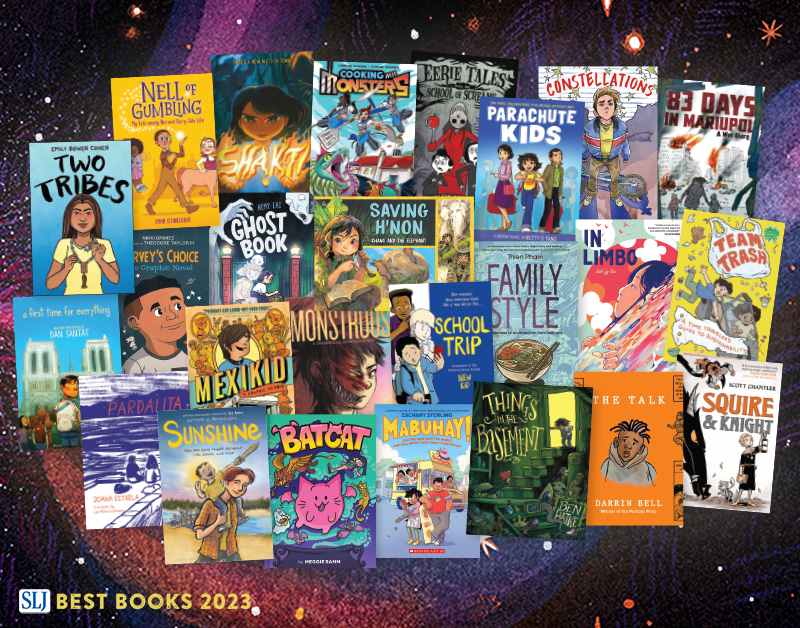
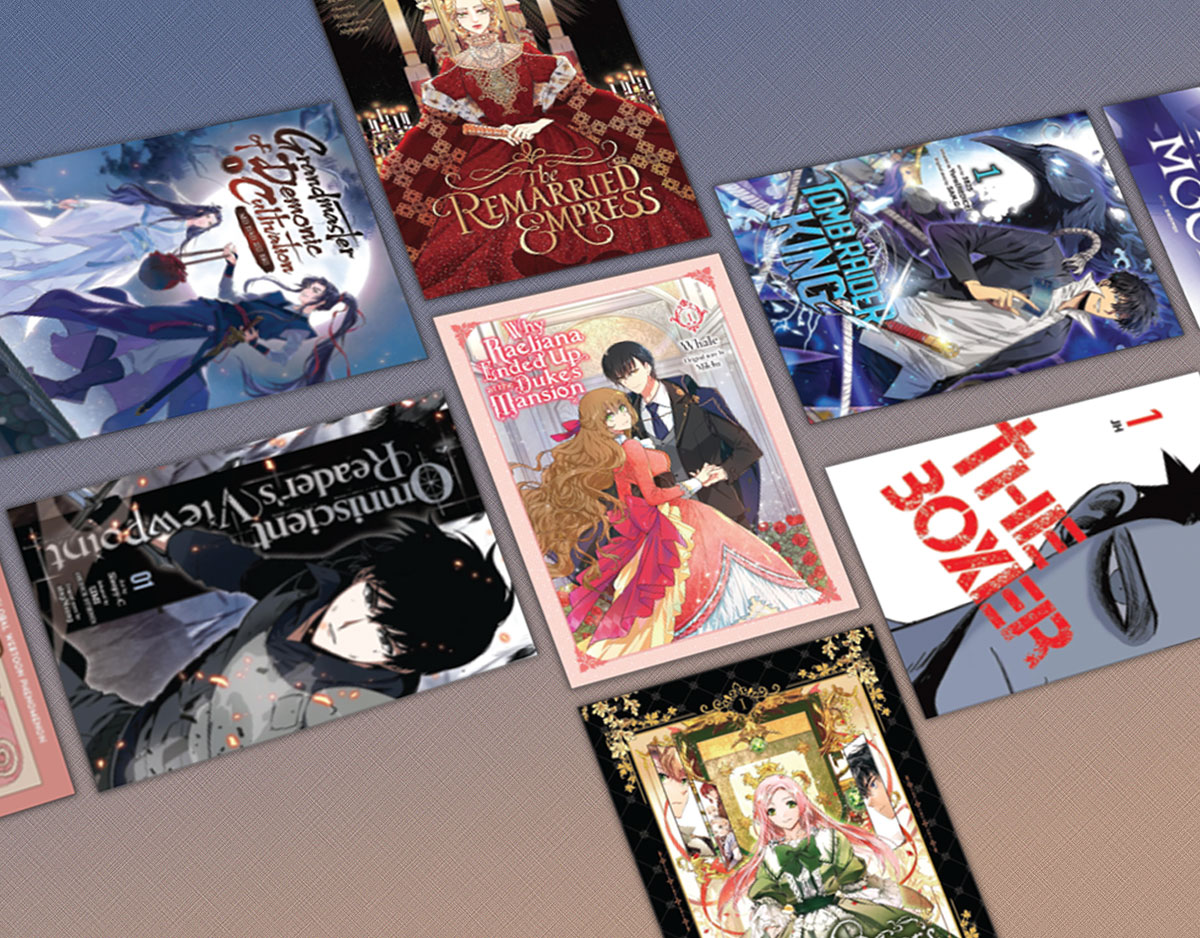
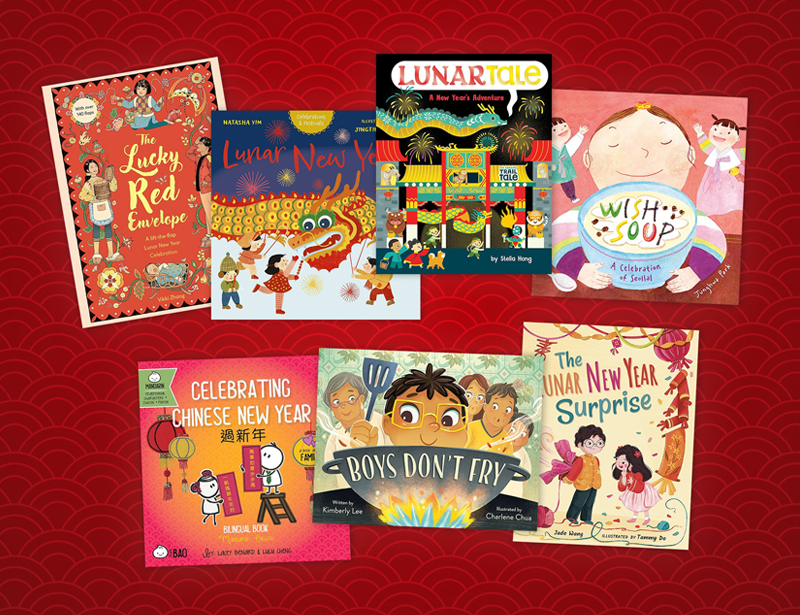
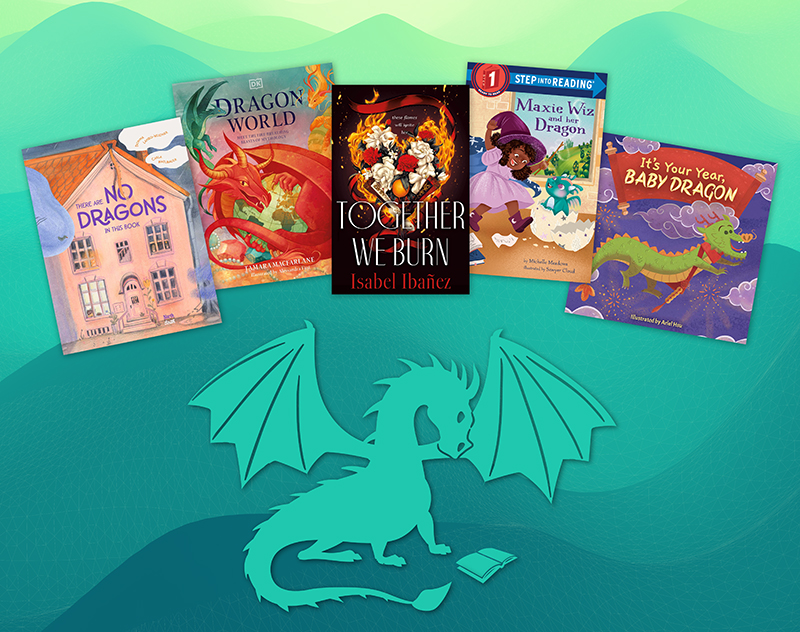
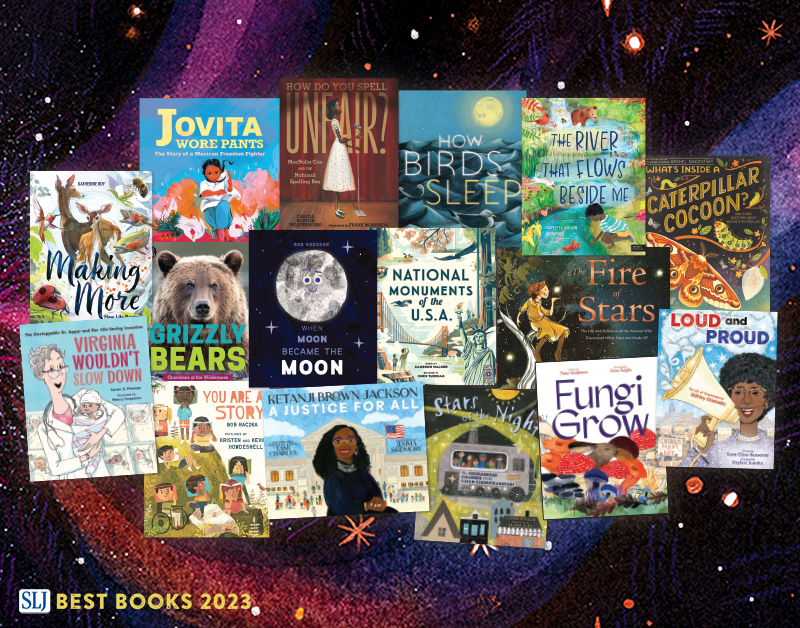
What about the dogs in Go Dog Go? There’s been one musical of it but nothing else I know of. And what about Nate the Great? Or Encyclopedia Brown, for that matter? (ps–I hope you write that post about The Weird Timelessness of Nate the Great sometime soon)
Nate the Great is tricky territory since new ones are coming out all the time. Are they still Sharmat? Hard to say. Sobol only died recently so Encyclopedia Brown probably won’t get an official update for another decade. And Peter Eastman, P.D. Eastman’s son, has been doing the Fred and Ted books by his dad, but not the Go Dog Go ones specifically, you’re right.
You picked favorites from my childhood (awhile before yours) and my son’s that I also hope will remain limited to their wonderful selves – and probably not coincidentally are usually in the gift boxes for new babies.
There are NEW Nate the Greats coming out? I’m so out of touch.
I’d kind of like to see new Alfred Hitchcock and the Three Investigators mysteries, but they’d have to be period pieces, set back when Hitchcock was still alive. (Otherwise, we’d end up with stories where the Three Investigators meet with…I dunno…Lemony Snicket, which would be funny but incredibly creepy.)
Well, I know that for a while there were 3 Investigators books that didn’t have Hitchcock. I don’t remember who his replacement was, but needless to say he was pretty forgettable. But I may have to fawn over this idea of restarting the idea with Lemony Snicket. By God, it may be our only hope.
To Little, Brown!
They made up a writer named Hector Sebastian, who had much less personality than Alfred Hitchcock. He was so bland that I have to keep Googling him just to remember his name.
When I was a kid I had the vague sense that maybe he was just another movie director, albeit one I’d never heard of.
I also loved all these children’s classics in their original form (I was a child in the 1970s, and there’s nothing like the original “Make Way For Ducklings” “Ferdinand”, etc. Ditto for most Dr. Seuss books and original movies (eg. Cat in the Hat, Grinch Who Stole Christmas), and for the original books and movies of “Charlotte’s Web” by E. B. White and “Charlie and the Chocolate Factory” by Rohld Dahl.
On the other hand, if we want to share the wonders of these children’s classics with new generations how can we (meaning we librarians, parents teachers and caregivers) breathe new life into these wonderful stories, keeping the messages of curiosity (eg. Blueberries for Sal) moderated with deferred gratification (eg. Charlie and the Chocolate Factory), Kindness to others (eg. Charlotte’s Web) being true to oneself (The Story of Ferdinand) while appealing to children of this and future generations who often have shorter attention spans than may have been the case I. “the good old days” when we were growing up? (I know that even in my day I appreciated a commercial break now and then when watching these movies, or having the books read in an installment or two because in my early elementary school years it gave me time to wonder about what would happen when the story or movie resumed – it kept the suspense alive, as well as giving me and other kids a chance to get up and move around, which young kids need to do periodically.).
So “installments” and breaks are one idea which I think could make these classics appeal to today’s and tomorrow’s kids – evening it means installments over a few days to accommodate busy schedules and increasingly shorter attention spans. However, there can be fun projects and activities to keep the stories fresh in the kids’ minds, everything from short “what do YOU think?” discussions such as messages for Charlotte the spider to spin in her web (possibly having the kids do duscarded magazine letter cutouts – since we still have print magazines) to getting them involved in creating a simple blueberry-themed snack after an installment of “Blueberries for Sal”. Of course it is probably good to start doing this kind of hands on activity when the kids are still in the preschool or kindergarten age range if possible, before they are too preoccupied with all the latest technological gadgetry and before they think the stores are outdated (eg. People don’t dress the way you see them dress in many of the illustrations in these books, they don’t use phones with cords, there are less people farming and picking their own blueberries, so we adults may need to talk to kids about what it used to be like to do these things – and, ideally sponsor or recommend a field trip to a petting farm or a place where you can pick blueberries but hopefully without wild bears). I couldn’t afford to actually implement as many of these ideas at my libraries as I would have liked – we had tight budget and time constraints even by library standards because I mostly worked in low-income urban areas, but I would always try to at least have activity sheets which would be (hopefully) more like souvenirs of our story time even than like “homework”. Sometimes with the older children, old enough to read to some extent on their own (eg. 3rd or 4th Grade) I might briefly mention a chapter book during our informal after school “hang out” held once or twice a week. Most of the time the book would get mentioned and briefly described in between games or crafts, but I would share ideas like those I’ve mentioned above, and now and then the kids would take me up on my idea for a book-themed activity, including my describing a scene and them acting it out, the Charlotte’s web word idea mentioned above, etc.
I really miss the days of having after school “hang outs” because I developed a following of eager kids. Layoffs and budget cuts out an end to this opportunity in the series of impoverished communities I served (I’d love, by the way, to see more articles and discussion of how to keep these libraries afloat in communities which struggle to find enough money for things like public safety and sanitation let alone perceived “luxuries” like libraries and constructive activities for children and teens and families). Meanwhile, I’d be eager to hear other people’s ideas on keeping classics (old and new) alive for kids in a way that doesn’t involve so much commercialization, product placement, etc., and that accommodates today’s shorter attention spans (in both children and adults) but still awakens curiosity and hands on involvement for kids and families.